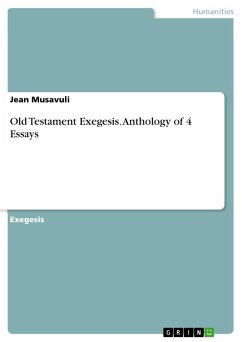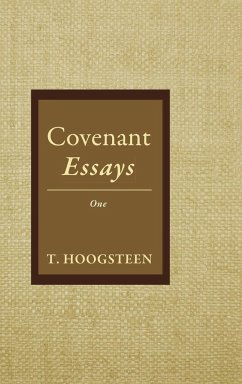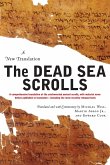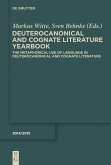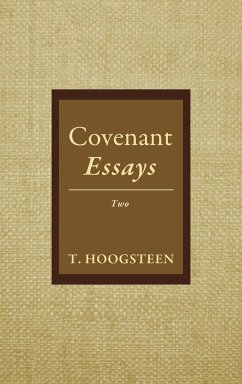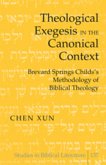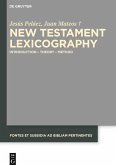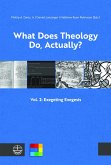Exegesis from the year 2015 in the subject Theology - Biblical Theology, grade: Respectively: A, A, B, B, Nairobi Evangelical Graduate School of Theology, course: Hebrew Narrative, Hebrew Poetry, Minor Prophets, language: English, abstract: BOAZ'S ENCOUNTER WITH THE KINSMAN-REDEEMER: AN EXEGESIS OF RUTH 4:1-6It is clear to any reader of the book of Ruth that Boaz and Ruth had fallen in love with each other before Boaz works out the redemption plan for Naomi. As a rich and strong man, Boaz would abusively use his influence to marry Ruth illegally, without observing the Law and the traditions of his people. However, as it is demonstrated in the first paper in this book, Boaz faithfully, though skillfully and tactfully, pursued the legal processes in marrying Ruth. In this, Boaz and Ruth set an example to follow for believers seeking marriage.THE JUDGMENT OF THE NATIONS: AN EXEGESIS OF JOEL 3:1-3Any reader of the prophet Joel quickly understands that chapter three is a prediction ofthe judgment of the nations. However, some questions seem not clearly answered in the chapter and those which are answered seem unsatisfied. Such questions will include the when, the who, the where and the when of the judgment. In the second paper of this book, I show that the main exegetical role of 3:1-3 is to present only skeletal answers to these questions before expanding them in the rest of the chapter.ISRAEL'S FAKE REPENTANCE: AN EXEGESIS OF HOSEA 6:1-3Hosea 6:1-3 has been interpreted variously by exegetes. While some view it to record the Hosea's call of the people to repentance, others see it as portraying the prophet's prayer to the Lord on the behalf of the people. Still, another group view it as a lament of the people before the Lord, that is, the people's repentance. However, in the third paper in book, I expose the pericope as portraying instead God's people's fake repentance, thus advocating for the views of some other scholars.THE ULTIMATE DIFFERENCE BETWEEN THE RIGHTEOUS AND THE WICKED: AN EXEGESIS OF MALACHI 3:19-20After God has rebuked his people for various sins in Malachi 1-3, chapter 4 shows the future retributions of both the wicked and the righteous. In 4:1-3 (3:19-21 in the Hebrew Bible), God speaks of these retributions as the ultimate difference between the wicked and the righteous. In the fourth paper of this book, I seek to understand what this ultimate difference is all about, before drawing subsequent conclusions and recommendations.
Hinweis: Dieser Artikel kann nur an eine deutsche Lieferadresse ausgeliefert werden.
Hinweis: Dieser Artikel kann nur an eine deutsche Lieferadresse ausgeliefert werden.

